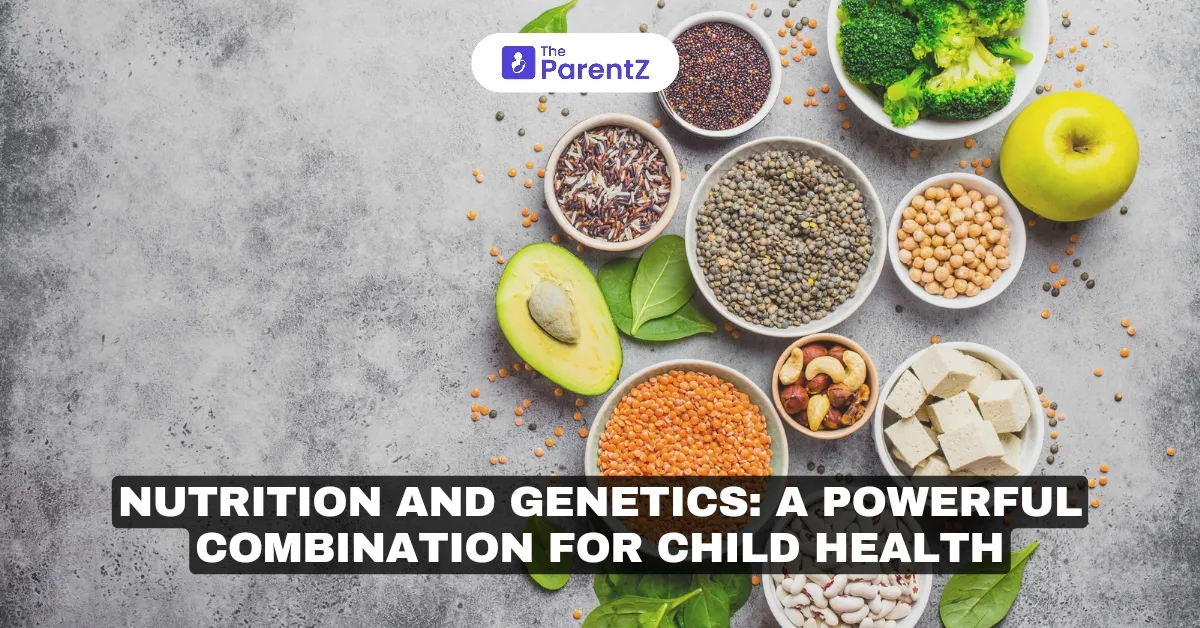Ever thought about why one child ends up with an upset stomach after a glass of milk but the other doesn't? The answer lies in a surprising combination of nutrition and genetics. An emerging crossroad changing perspective about how you think about health, especially for your little ones.
Read below this article to know how the combination of nutrition and genetics shapes your child’s health.
The Role of Genetics in a Child’s Nutrition
Genetics, often referred to as nature’s blueprint, plays an essential role in how children absorb nutrients and react to various foods. Did you know that 70 percent of a child’s height is determined by their genes, while the remaining 30 percent depends on environmental factors such as diet and exercise?
For example, lactose intolerance—a condition where individuals struggle to digest lactose, the sugar found in milk—is actually driven by a genetic variation. In fact, according to the National Institutes of Health, nearly 65 percent of the global population has reduced lactose tolerance after childhood. This means what's nutritious for one child may not be fit for the other.
Nutrigenomics: Here’s What To Know
Nutrigenomics basically studies how genes interact with the foods you eat. For example, some kids may have a genetic variant that makes them less efficient at converting plant-based omega-3 sources into DHA, a component needed for brain development. Therefore, such kids may benefit from fish-based omega-3 supplements.
Simultaneously, genetic differences can also influence how well a child absorbs iron from foods.If their genes indicate low absorption, iron-rich foods such as spinach become essential to avoid anemia that affects almost 40 percent of kids below the age of five worldwide.
How Nutrition Influences Genes?
Did you know nutrition influences genetic expression too? This concept, known as epigenetics, shows that while you can’t change your child’s DNA, you can change how these genes behave.
In simple words, a diet rich in fruits, vegetables, and whole grains can switch on genes promoting good health while switching off genes promoting chronic illnesses. In fact, even a study has proven that early dietary habits can shape gene expression, thereby impacting your child’s metabolism and immunity too.
Personalized Nutrition Plans: The Future
No specific dietary recommendations suit every child. And nowadays, with advancements in genetic testing, parents can actually create personalized nutrition plans for their little ones. Here are a few examples.
- Food Allergies: Genetic tests can be helpful in identifying predispositions to food allergies, such as peanuts or gluten. This enables parents to make safer dietary choices.
- Metabolic Rates: Some kids burn calories faster due to their genetic makeup. This way parents can adjust portion sizes to maintain a healthy weight.
Takeaway
Nutrition is one of the major concerns of parenting that comes with a lot of questions. The best approach is to understand your child’s dietary needs and create a personalized diet that supports their overall growth. And as research is continuously unveiling the secret connection of genetics and nutrition, it's evident that nutrition is truly needed to fuel your child’s potential.





Be the first one to comment on this story.